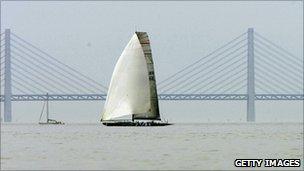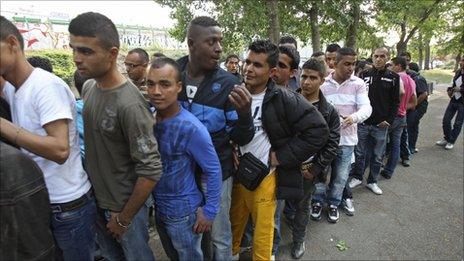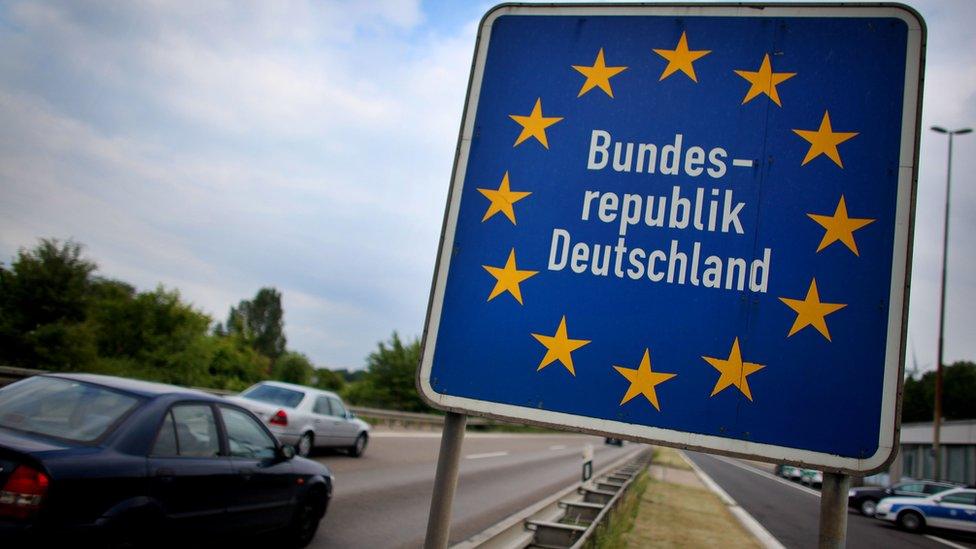Schengen state Denmark to re-impose border controls
- Published

Customs officers are set to be posted at the Oeresund Bridge linking Denmark with Sweden
Denmark, one of the Schengen states, is to re-impose controls on its frontiers with Germany and Sweden within weeks, amid pressure from the right.
Finance Minister Claus Hjort Frederiksen said customs booths would be erected at crossings, as well as at harbours and airports.
Insisting the controls were compatible with Schengen membership, he blamed a rise in cross-border crime.
A populist right-wing party allied to the government had called for the move.
The Danish People's Party (DPP) and its leader Pia Kjaersgaard argued controls would counter illegal immigration and organised crime.
The Schengen Agreement, which dates back to 1995, abolished internal borders, enabling passport-free movement between a large number of European countries.
Denmark joined in 2001 along with other Scandinavian countries.
'Within Schengen limits'
"We have reached agreement on reintroducing customs inspections at Denmark's borders as soon as possible," Mr Hjort Frederiksen told reporters in the capital Copenhagen.
The new controls would, he said, enter into force within two to three weeks.
Because Denmark is a Schengen member, it cannot reinstate full frontier controls and the minister said the new measures would "take place within the limits of Schengen".
"Over the past few years we have seen an increase in trans-border crime, and this is designed to curb the problem," he said.
"We will be building new facilities at the Danish-German border, with new electronic equipment and number-plate identifiers."
He said he wanted Danish customs officers to be permanently present at the Oeresund Bridge border crossing between Denmark and Sweden.
The border controls were negotiated by the DPP in return for supporting the government's pension reform.
'Gentleman's agreement'
"It has to be something that works," DPP deputy leader Peter Skaarup was quoted as saying by Denmark's Politiken newspaper.
"A strengthening of customs controls in which there is a permanent customs officer presence. There must also be extra funds for the police so that those caught in customs controls can be arrested."
The newspaper notes that the use of customs officers would be a way of getting around the Schengen rules, as checks would be random.
According to Politiken, the DPP also reached a "gentleman's agreement" with the government that Denmark would support a Franco-Italian proposal for changes to the Schengen Agreement itself.
Denmark's ruling coalition of liberals and conservatives relies on the DPP's support to pass legislation in parliament.
The country must hold its next general election by this November.
- Published4 May 2011

- Published26 April 2011
- Published24 April 2016

- Published21 December 2010